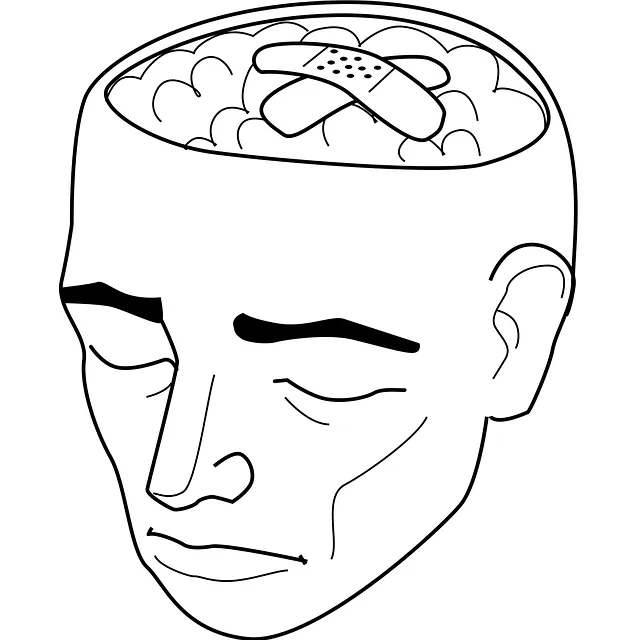The Kaiser Permanente Mental Health Access Center in Lakewood offers a comprehensive range of services to enhance community well-being. With a dedicated team, it provides easy access to mental health care, addressing routine to complex cases using evidence-based practices. The center focuses on emotional intelligence development through self-awareness, empathy, and resilience cultivation. It promotes journaling, mindfulness, active listening, and stress management techniques for improved mental health journeys.
Emotional intelligence (EI) is a game-changer in personal and professional growth. This article explores strategies to build EI, drawing insights from the Kaiser Permanente approach and highlighting success stories from the Kaiser Permanente Mental Health Access Center at Lakewood. We delve into key areas such as self-awareness, empathy, emotion regulation, and their impact on well-being. By understanding and cultivating these skills, individuals can foster stronger connections, navigate challenges effectively, and unlock their full potential, just like the Lakewood Center does for its community.
- Understanding Emotional Intelligence: The Kaiser Permanente Approach
- Unlocking Potential: Mental Health Access at Lakewood Center
- Self-Awareness: A Cornerstone for Personal Growth
- Empathy in Action: Connecting with Others
- Regulating Emotions: Strategies for Stress Management
Understanding Emotional Intelligence: The Kaiser Permanente Approach

Unlocking Potential: Mental Health Access at Lakewood Center

At Lakewood Center, Kaiser Permanente’s mental health access center, individuals unlock their full potential through enhanced emotional intelligence. This hub offers a safe space where people can access comprehensive Kaiser Permanente mental health access services tailored to meet diverse needs. Beyond traditional therapy, the center provides innovative programs focused on cultivating self-awareness, empathy, and resilience—essential components of emotional intelligence.
The center’s commitment extends beyond treatment; it advocates for Mental Health Policy Analysis and Advocacy, ensuring systemic improvements in trauma support services. By integrating evidence-based practices and addressing risk factors through Risk Assessment for Mental Health Professionals, Lakewood Center fosters a supportive environment where individuals can thrive. This holistic approach empowers clients to navigate life’s challenges with greater equanimity, ultimately enriching their personal and professional lives.
Self-Awareness: A Cornerstone for Personal Growth

Self-awareness is a powerful tool for personal growth and is at the heart of emotional intelligence development. It involves recognizing and understanding your emotions, thoughts, and behaviors, as well as their impact on yourself and others. The Kaiser Permanente Mental Health Access Center Lakewood emphasizes the importance of this cornerstone in fostering mental wellness. By cultivating self-awareness, individuals can gain valuable insights into their strengths, weaknesses, and triggers, enabling them to make informed decisions about their emotional responses.
Journaling and mindfulness exercises are excellent guidance tools for enhancing self-awareness. Writing down thoughts and feelings in a Mental Wellness Journal allows one to reflect on patterns, identify stressors, and practice present-moment awareness. This process can significantly contribute to depression prevention and anxiety relief, as it encourages individuals to challenge negative thought cycles and develop healthier coping strategies.
Empathy in Action: Connecting with Others

Empathy is a cornerstone of emotional intelligence and plays a pivotal role in fostering strong connections with others. At the Kaiser Permanente Mental Health Access Center Lakewood, professionals emphasize its practical application in daily interactions. Through active listening, mental health experts cultivate an environment where individuals feel understood and valued, breaking down barriers and promoting open communication. This approach not only enhances patient-therapist relationships but also serves as a powerful tool for conflict resolution techniques, enabling constructive dialogue and mutual understanding.
By incorporating empathy into their practice, professionals at the center contribute to anxiety relief, as it creates a safe space for individuals to share their experiences without judgment. Moreover, this skill is essential in conducting thorough risk assessments for mental health professionals, ensuring the well-being of both clients and practitioners. It encourages a deeper level of engagement, allowing for more accurate interpretations of emotions and behaviors, ultimately enriching the therapeutic process.
Regulating Emotions: Strategies for Stress Management

Emotional regulation is a key component of building emotional intelligence and maintaining good mental health. It involves understanding and managing our feelings in healthy ways, which can be especially challenging during stressful times. At the Kaiser Permanente Mental Health Access Center Lakewood, we offer valuable resources and guidance on stress management strategies tailored to individual needs.
One effective approach is incorporating self-care practices into daily routines. This could include activities like mental wellness journaling exercises, where individuals can express and process their emotions. Additionally, risk assessment for mental health professionals plays a crucial role in identifying potential triggers and implementing coping mechanisms. By prioritizing self-care and utilizing appropriate tools, one can enhance emotional resilience, leading to better stress management and overall mental wellness.
Emotional intelligence is a powerful tool for personal and professional growth, as demonstrated by organizations like Kaiser Permanente through their access centers. By prioritizing self-awareness, empathy, and emotion regulation, individuals can enhance their relationships and overall well-being. The success at the Lakewood Center in unlocking potential through mental health access underscores the significance of these principles in today’s world. Building emotional intelligence is a journey that begins with understanding and practicing these skills, leading to transformative personal growth and stronger connections with others.






